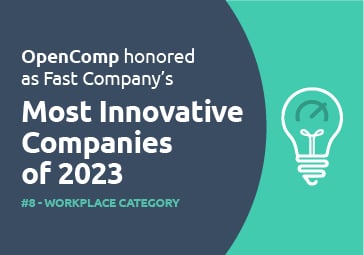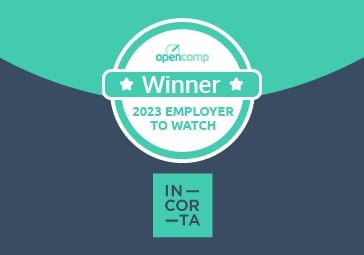It costs up to nine months of an employee's salary to replace them. For executive roles, this estimate can scale to more than 25 months of a salary. Regardless, getting the right employees in the front door matters, especially as new headcount gets extra scrutiny in the uncertain economy.
Chris Starr, Senior Recruiter for Engineering Leadership at Airbnb, discusses how to do just that — as well as to support your company’s investment in talent through the entire employee lifecycle.
This blog shares the following three main topics from the conversation:
- Common recruiting misconceptions HR leaders make
- What sets up an HR department for ultimate recruiting success & retention
- How to align company values and compensation to candidate needs
Subscribe to the show on your favorite podcast player, such as Apple Podcasts or Spotify. Don’t miss the full episode: How to design recruiting to support retention.
Common recruiting misconceptions that HR leaders make
When it costs so much time and money to replace an employee, it makes sense to try to hire the right people the first time around. But some HR professionals lose valuable allies when they have a common misconception about recruiters: believing that recruiters care more about hitting hiring goals and metrics than asking the right questions to get quality candidates, such as:
- Are they the right culture fit?
- Are they right for the specific opportunity?
- Are they right for the specific team?
“In my experience, looking for quality candidates is something that I try to do throughout the process, like constantly evaluating each interaction from a culture fit perspective.” — Chris Starr
For Chris, finding the right person for the job has always been the priority. He shares one strategy that involved assessing how candidates interacted with a trusted receptionist. She would meet every candidate who came in; if the person was disrespectful, she would let Chris know, helping to avoid potential bad hires from the beginning. As Chris says, the small things indicate a lot.
Even in a virtual setting, there are opportunities to evaluate the candidate by their peripheral communications during interviews across the recruiting team and interview panel:
- How do they handle themselves before, during, and after interviews?
- Do they write well?
- Are they polite in their communications?
Recruiter frustrations during hiring
One of the most disheartening events that Chris has experienced in his 25 year career is when a candidate chooses an opportunity based on compensation alone. From his perspective, a position is more than its pay — If a candidate dislikes their position, it doesn’t matter how much the compensation is; they will eventually leave.
Chris believes it’s important to emphasize this distinction to candidates from the beginning and continue to check in with them after hiring to make sure the role remains a good fit. Retention follows.
What sets up an HR department for recruiting & retention success
Chris’s top piece of advice for companies looking to drive employee success is to build a partnership between HR and recruiters. While HR will know much more about the company’s needs than recruiters, recruiters can action the company's needs in candidate searches. For example, sharing diversity information can significantly help recruiters bring in the right talent.
Without a certain degree of alignment, recruiters can’t provide candidate options that support business needs.
“Giving recruiters that look under the hood, so they can understand things like headcount plan and diversity strategy is the foundation of a great, productive partnership.” — Chris Starr
What happens after a candidate accepts
While it’s exciting to see a candidate get all the way through the hiring process and accept the role, keeping that talent is an ongoing responsibility. One of the most effective retention tactics Chris has seen is providing continued education such as certification programs — Something that isn’t always done but can be rewarding, from employee and company perspectives.
How to align company values and compensation to candidate needs - another retention supporter
For many businesses already entrenched in the habit of keeping compensation secret, it’s time to remove the stigma. Everyone in Amy’s company knows her salary alongside everyone else’s.
“It's okay to talk about money, money is not a dirty topic.” — Amy Spurling
Compensation remains one of the top priorities for candidates today. But when that goes too far, alignment on company mission and values gets overlooked. Chris’ advice to candidates: Pick the company you align best with — the money will come with patience.
In Chris’ experience, a candidate should choose the company they are excited about, even if that means a lower starting salary. Otherwise that candidate will burn out within the first few years.
Sign up to check candidate offer salaries in OpenComp for free.
To hear this episode, and many more like it, you can subscribe to The High Growth Matters Podcast on our website, Apple Podcasts, Spotify, or just search for The High Growth Matters Podcast in your favorite podcast player.


